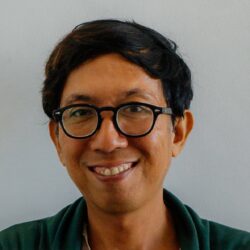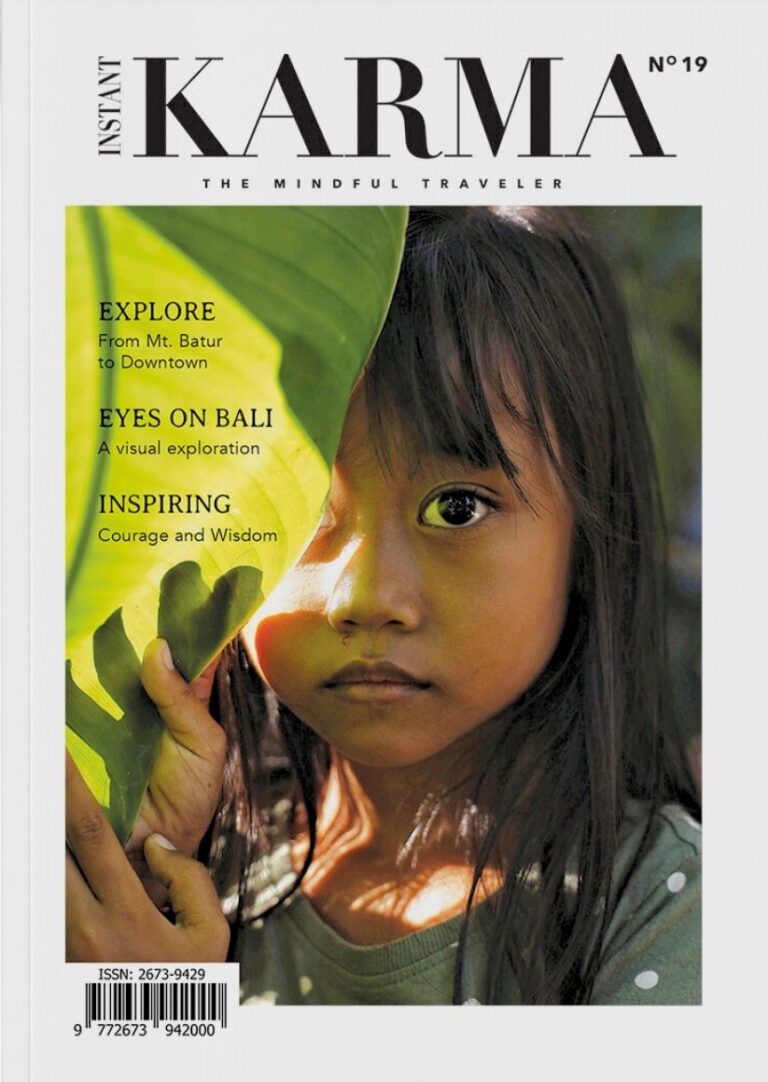A renowned Balinese professor once said,
“Bali should apply the concept of ecotourism: what we have in nature is the attraction”.
It’s a bit disheartening that the current mass tourism dictates that lands and rice fields are to be converted into cafes, beach clubs, hotels, and many other tourist magnets.
But ecotourism—or sustainable tourism—still has its champions, and one of them is Jaringan Ekowisata Desa (Village Ecotourism Network), an offshoot of the local NGO Wisnu Foundation, that aims to build a community-based tourism, where the community is the key player who runs the show, instead of companies.
What exactly is ecotourism?
“The topic of sustainable tourism kind of started it all, but it’s a generic term. We prefer to approach the topic from an environmental standpoint,“ says Bapak Gede Sugiartha, Manager of Data and Communication of Wisnu Foundation.
“Mass tourism has been happening since a long time ago in Bali, and it has drained our natural resources from food to water to energy, and not to mention creating more trash. So, while governmental agencies opted for workshops and training about sustainable tourism, we choose a more natural solution where it doesn’t have to change the ‘face’ of the village. We don’t need to build hotels and villas. It’s not about trying to make guests feel comfortable but more about showing them the true face of Bali.”
Authenticity is key — and that includes preserving the surrounding nature, the village façade, and the local’s way of life.
“Your tour guide is the village. What do they talk about? They talk about their livelihood; if they’re from coffee plantation then they’ll talk about coffee. So, what’s naturally available strengthens the appeal.”
Challenge of the Land
Jaringan Ekowisata Desa (JED) was established since 2002 and their pilot project began in four villages (or banjar, the smaller unit of village governance, as pak Gede corrected): Kiadan Village in Pelaga (known for its coffee), Dukuh Village in Karangasem (for its salak or snakeskin fruit), Ceningan island in Klungkung (for its seaweed farming), and Tenganan Pegrinsingan Village in Karangasem (an indigenous community who manage their territories and traditions independently).
Each project requires on average three years of arduous planning, mapping of natural resources, transfer of knowledge, capacity building, training, supervision, and so on. The process is understandably complex, and even when the result is satisfactory, occasionally the shadow of investors looms large.
Once their project in Dukuh village started to bear some fruit, a foreign investor swooped in with their (government issued) permit to create a brand of salak-based wine; an opportunity that could have been given to the community themselves. Or as Pak Gede laments, “The community should be the investors.”
Another setback is when the allure of modern tourism sets in. Like what happened on the island of Ceningan when locals started to build cafes/restos that catered to foreign tourist. Thus began the changing of the face of Ceningan.
Potential in Social
Such model of tourism, however, was proven unsustainable in the face of a pandemic. When Covid struck, the people from the villages that employs JED’s ecotourism program were largely unaffected. Why? Because they don’t rely their livelihood on tourism alone.
“They work as farmers, fishermen, seamstress, and craftsmen—and many of them were able to survive during the pandemic,” says Fransiska Natalia, JED’s Program and Marketing Staff. “An ideal application of ecotourism is that it does not rely solely on tourism. Tourism is just a bonus.”
Siska further explains that at the heart of sustainable tourism, lies in the community. “[In ecotourism] community is no longer the ‘object’, but the subject that is actively involved. The participation is not merely about the location but also about them running the management together.”
The environmental aspect should indeed be a crucial aspect of sustainable tourism.
JED reminds us not to forget about the people.
“When we talk about sustainable ecotourism, usually there are three things involved: social, environment, and economy,” Siska says. “We often talk more about, what financial impact do you bring to the community? But we see more potential in the social. In empowering the community.”
It takes a village, to give power to the people. It’s more sustainable that way.
Experience an authentic Bali life on your holiday here, go to www.jed.or.id to check out the 10 villages they’re collaborating with.
Website www.jed.or.id
Instagram @jed.bali









